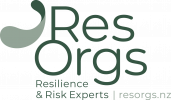emergency management &
catastrophic event planning
Conference
30 - 31 March 2026 | Te Papa, Wellington
Build our readiness for emergencies, together.
Recent floods and cyclones have underscored the critical need for emergency planning.
This conference will bring together the emergency management and civil defence professional community with first responder agencies and other key stakeholders, providing an opportunity for the broad audience to hear the latest developments in emergency management and catastrophic event planning.
Supporting the emergency management system to improve readiness by identifying and addressing gaps and delivering a framework for nationally coordinating the response.

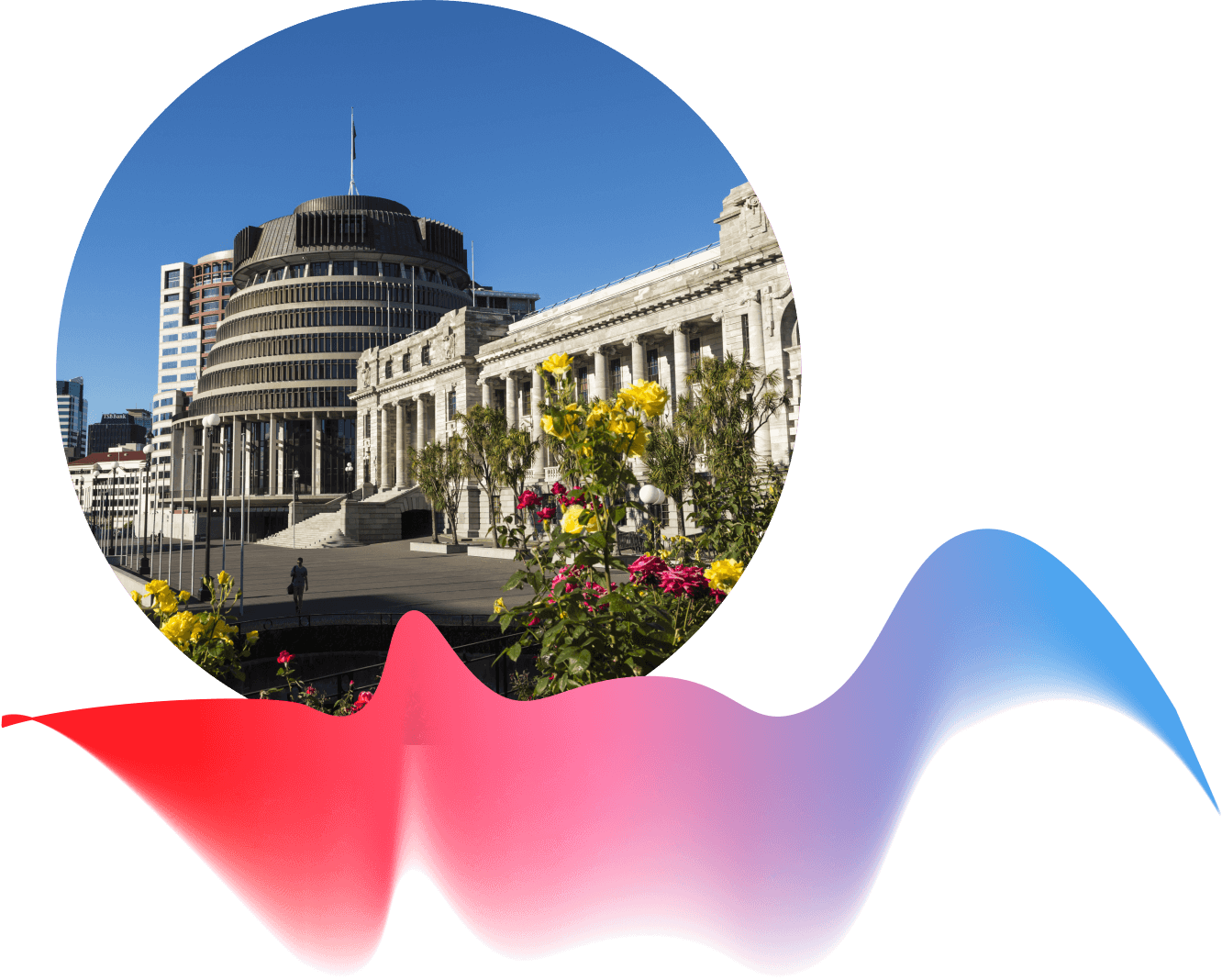
Emergency fully explored.
Featuring:
- Insights from leading global experts sharing their unique experiences that can inform our emergency planning
- The latest developments in emergency management legislative reform and the delivery of change
- Local experts and emergency management leaders discussing both key BAU emergency management issues and how to achieve improvement in preparedness
- Input from all key community representatives and wider stakeholder groups to support the achievement of greater cross agency collaboration and the operationalisation of a true all of community response
- Analysis of the key specific catastrophic planning scenarios
- Unique event to connect with extraordinary professionals planning for the worst
KEY SPEAKERS FOR 2026
Be guided by subject experts in emergency planning and catastrophe science

Sean Fullan

Professor Jan Lindsay
Co-Leader Determining Volcanic Risk in Auckland (DEVORA) Programme &
Professor – School of Environment, University of Auckland

Professor Thomas Wilson
Professor of Disaster Risk and Resilience, University of Canterbury

Not just for emergency rescue.
Catastrophe planning must involve everyone in the community. This conference is designed for:
- Emergency Management Teams / First Responder organisations
- Local / central Government leaders, Civil Defence / Emergency Management Committees
- Iwi and Community Groups
- Scientists and academic leaders
- Public services such as health, utilities, infrastructure sectors
- Business risk and continuity teams
Add Your Heading Text Here

Sub Heading Here
Ut elit tellus, luctus nec ullamcorper mattis, pulvinar dapibus leo.Lorem ipsum dolor sit amet

Sub Heading Here
Ut elit tellus, luctus nec ullamcorper mattis, pulvinar dapibus leo.Lorem ipsum dolor sit amet

Sub Heading Here
Ut elit tellus, luctus nec ullamcorper mattis, pulvinar dapibus leo.Lorem ipsum dolor sit amet

Sub Heading Here
Ut elit tellus, luctus nec ullamcorper mattis, pulvinar dapibus leo.Lorem ipsum dolor sit amet
Add Your Heading Text Here
We are currently working on the programme and agenda.
If you would like to have input into our research programme please email xxxx@brightstar.co.nz
KEY SPEAKERS FOR 2025
Our 2025 key lineup features financial leaders and strategic thinkers sharing insights on leadership, innovation, and the evolving role of today’s CFO.
Check out the full list.

Name
Job title
Org

Name
Job title
Org

Name
Job title
Org
Venue
The location and how you can get there
Address
Te Papa, Wellington
55 Cable Street, Wellington 6011, New Zealand
Check out our other upcoming events
Agenda
Agenda to be announced
8:30 | Registration and Coffee |
9:00 | Mihi whakatau |
9:10 | Welcoming remarks from Conference Chair |
9:15 | Strengthening Emergency Management – delivering legislative reform to improve New Zealand’s resilience, disaster planning and emergency response capability
|
9:45 | Delivering operational improvement in emergency management
|
10:30 | Morning refreshments |
11:00 | Translating science into practice to improve emergency management
Professor Thomas Wilson, Chief Science Advisor, National Emergency Management Agency|Te Rākau Whakamarumaru & Professor of Disaster Risk and Resilience, University of Canterbury |
11:40 | Producing a 10-year emergency management strategy for Wellington region
Jessica Hare, Business and Development Manager, Wellington Region Emergency Management Office (WREMO) |
12:30 | Lunch |
1:30 | Achieving comprehensive risk management – developing a coordinated, mature approach to identifying, tracking and managing risks
|
2:00 | Panel discussion: Operationalising a whole of community response to improve emergency management effectiveness and societal resilience
Dan Neely, Kaiwhakahaere ā Rohe | Regional Manager, Wellington Region Emergency Management Office (WREMO) |
2:45 | Exploring the Community Emergency Hub model - Building social capital and leveraging community-based solutions for disaster preparedness and response
Sam Bishop, Manager Community Resilience and Group Recovery Wellington Region Emergency Management Office (WREMO) |
3:20 | Afternoon break |
3:40 | Exploring indigenous approaches to disaster risk and building genuine partnerships with Māori to improve emergency management
Jamie Ruwhiu, Public Health Emergency Manager – Te Waipounamu, Health NZ -Te Whatu Ora |
4:20 | Leveraging cutting edge technology to improve disaster and threat risk assessment and emergency management response
Associate Professor Raj Prasanna, Deputy Director - The Joint Centre for Disaster Research (JCDR), Massey University Manomita Das, Research Officer- The Joint Centre for Disaster Research (JCDR), Massey University |
5:00 | Summary remarks from the Chair & Networking Drinks |
9:00 | Welcome back from Conference Chair |
9:05 | Beyond the unthinkable - Operationalising catastrophic readiness
David Parsons, President, Australasian Institute of Emergency Services, Lecturer, Charles Sturt University, Director, Crisis Management Australia, Deputy Director Response and Recovery Aotearoa New Zealand |
9.50 | Keynote address: Living through a catastrophic event
Titi Moektijasih, Humanitarian Affairs Analyst, UN Office for Coordination of Humanitarian Affairs (OCHA) and Banda Aceh tsunami survivor |
10:30 | Morning refreshments |
Catastrophic Event Scenarios | |
11:00 | Understanding New Zealand’s tsunami risk and response lessons from global tsunami events
Jose Borrero, Coastal and Environmental Scientist and Engineer, Tsunami and Coastal Hazards Specialist, Orcas Consulting |
11:40 | AF8 – Analysing the planning scenario for what happens if we have a catastrophic quake on the southern Alpine Fault
Alice Lake-Hammond, AF8 programme manager, AF8 Programme |
12:20 | Catastrophic event planning around the risk of an Auckland Volcanic Field eruption
Professor Jan Lindsay, Co-Leader Determining Volcanic Risk in Auckland (DEVORA) Programme & Professor - School of Environment, University of Auckland |
1:00 | Lunch |
2:00 | Risk communication, public information, warning and alert communications
Dr Lauren Vinnell, Senior Lecturer - The Joint Centre for Disaster Research (JCDR), Massey University |
2:40 | Panel discussion: Coordinating planning to achieve resilience and build capability to deliver a true ‘all of society’ emergency response
Paul Bagg, Lead Advisor Emergency Management, NZ Transport Agency Waka Kotahi & Co-Chair, New Zealand Lifelines Council Max Riley, Head of Enterprise Business Resilience, Chorus Paul Brislen, Chief Executive Officer, New Zealand Telecommunications Forum Eric Raulet, Head of Infrastructure, Learning and Compliance for Supply Chain, Food Stuffs North Island Matt Copland, Head of Grid & System Operations, Transpower Megan Stiffler, Deputy Chief Executive, Operational Response / Deputy National Commander, Fire and Emergency New Zealand |
3:25 | Afternoon refreshments |
3:45 | Delivering effective planning to achieve mass evacuations
|
4:15 | Panel discussion: Bridging the “Recovery Gap” and planning for post disaster recovery and rebuild
Sean Fullan, Disaster Response and Recovery Leader, Insurance Council of New Zealand Suhail Sequeira, President, Chartered Institute of Logistics and Transport & Head of Customer Strategy, Port of Auckland Limited Dr Tracy Hatton, Director, ResOrgs |
5:00 | Summary remarks from the Chair & end of Conference |
Speakers
Speakers to be announced

Megan Stiffler
Read bio

Sam Bishop
Read bio

Dr Tracy Hatton
Read bio

Matt Copland
Read bio

Eric Raulet
Read bio

Suhail Sequeira
Read bio
Suhail joined Ports of Auckland in 2018. His role encompasses commercial engagement across cargo owners, shipping lines, freight forwarders, road and rail transport suppliers, industry associations, government agencies, and supply chain optimisation projects. As an experienced logistics and supply chain professional for close to 20 years, he has provided supply chain solutions across FMCG Retail, fresh and cold chain produce, automotive, pharmaceuticals, oil and gas, and military defence.
thankful to the Port for nominating me for the NZ Leadership Program. It has also been a time of lots of challenges for the port and the supply chain industry in general. But out of the challenge comes the opportunity to improve. Now, more than ever, we are aware of the effects of global warming and our responsibility to reduce carbon emissions in our supply chains. I have had the opportunity to design a carbon calculator that informs importers and exporters of their carbon emissions for different routing options for the North Island – enabling them to make informed decisions relating to their scope 3 emissions. I’ve also been involved in setting up and developing inland freight hubs –another initiative aimed at improving logistical efficiencies and reducing emissions.
These days, a large part of my role is rebuilding relationships with various stakeholders across the country by having regular catchups on port performance. We know we need a resilient New Zealand supply chain that functions through disruptions not only caused by a global pandemic, but also by climate change. Being a small island nation at the end of the earth, we are dependent on sea and air ports. At the basic level, our road and rail systems need to be resilient and reliable for the movement of freight to and from our ports as well as get our people to/ from work. We need to re-think our domestic networks and consider, strategic freight corridors on certain roads and rail which can scale as the demand increases.
I’m passionate about supply chain and logistics, a bit of a perfectionist (sometimes) and enjoy seeing a job through to completion. Above all, I enjoy playing golf, tennis, squash, cricket and watching sci-fi (Star Wars / Star Trek anyone?). Now you know who I am, so why not get in touch? I’d love to meet you.

Paul Brislen
Read bio

Max Riley
Read bio

Paul Bagg
Read bio

Alice Lake-Hammond
Read bio

David Parsons
Read bio
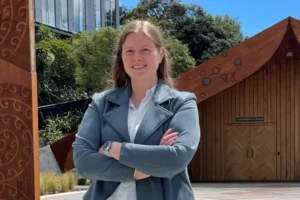
Dr Lauren Vinnell
Read bio
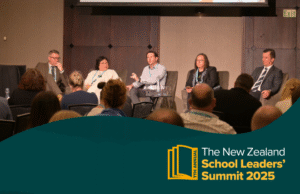
“If the Principal Sneezes, Everyone Gets a Cold”: Real Talk from the Leadership Trenches
Read bio
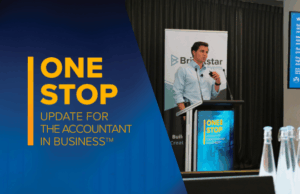
Workplace Burnout Is Rising – Key facts from Psychologist and Performance Coach Jay Barrett
Read bio
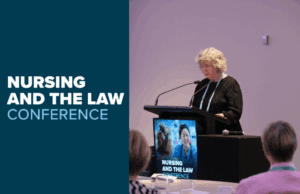
Short interview chat with President of New Zealand Nurse Organisation Anne Daniels: biggest nursing conversations in 2025 and 2026
Read bio

What does the New Zealand Gecko have to do with the modern finance function?
Read bio

Freshly announced: Congratulations to this year’s CFO Awards winners
Read bio

Leading AI and Digital Strategy Workshop on 23 October, 2025.
Read bio

Made in NZ, trusted worldwide: New Zealand trade and exports in a volatile world
Read bio
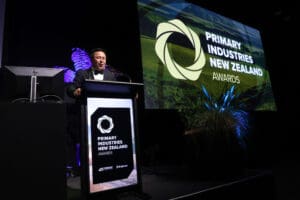
Primary Industries New Zealand Awards finalists announced for 2025
Read bio
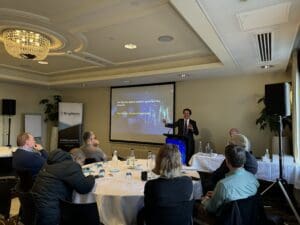
Navigating the Fiscal Tightrope: Infrastructure, Migration, Climate Change
Read bio

Rethinking Safety Leadership: From Heroes to Hosts
Read bio
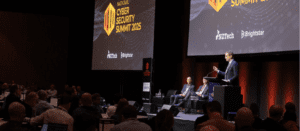
NZ Security Agencies Urge Cyber Vigilance: “Don’t Click on Dumb Sh*t”
Read bio
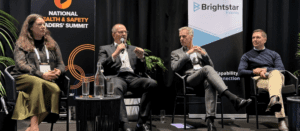
From Checklists to Curiosity: How Boards Are Redefining Health and Safety Governance
Read bio
Sponsors
Sponsors to be announced
Don't miss out on the connections and credibility boost!
Live B2B events are your chance to shine. Showcase your thought leadership, solidify your market position, and forge valuable connections with potential customers – all at once.
This exclusive event puts you in front of a highly skilled audience hungry for insights. Get ready for meaningful engagement that drives results.
Plus, we have some unique opportunities to put your company, products, and services in the spotlight.
Ready to take your brand to the next level? Contact us today to learn more or secure your spot at this leading event.

Workshops
Workshops to be announced
POST CONFERENCE
This workshop you will cover:
- Ut elit tellus, luctus nec ullamcorper mattis, pulvinar dapibus leo.Lorem ipsum dolor sit amet, consectetur adipiscing elit.
- Ut elit tellus, luctus nec ullamcorper mattis, pulvinar dapibus leo.Lorem ipsum dolor sit amet, consectetur adipiscing elit.
- Ut elit tellus, luctus nec ullamcorper mattis, pulvinar dapibus leo.Lorem ipsum dolor sit amet, consectetur adipiscing elit.
- Ut elit tellus, luctus nec ullamcorper mattis, pulvinar dapibus leo.Lorem ipsum dolor sit amet, consectetur adipiscing elit.
- Ut elit tellus, luctus nec ullamcorper mattis, pulvinar dapibus leo.Lorem ipsum dolor sit amet, consectetur adipiscing elit.
- Ut elit tellus, luctus nec ullamcorper mattis, pulvinar dapibus leo.Lorem ipsum dolor sit amet, consectetur adipiscing elit.
- Ut elit tellus, luctus nec ullamcorper mattis, pulvinar dapibus leo.Lorem ipsum dolor sit amet, consectetur adipiscing elit.

Speaker Photo
Job Title
Company Name
Want to join this conference?
Register your interest, we will be in touch when tickets are available.
Individual tickets
Come with a colleague
Registration Conditions
Ticket Terms
All prices are in New Zealand dollars ($NZD)
A surcharge of 2.5% + GST applies to credit card payments on top of the total amount.
Pre-Sale Tickets are valid only for the specific event for which they were purchased and cannot be transferred to other events. To remain valid, Super Saver and Early Bird tickets must be paid by date quoted.
Group ticket options are valid for registrations from the same organisation, booked at the same time.
By selecting any special pricing offer for classes of organisation, sector, or individuals or using any promotion code, you are asserting to the organiser your right to claim any such pricing offer, and acknowledge the organiser’s right to audit such claim and, if in the opinion of the organiser using its sole discretion the conditions for special pricing are not met, reject any registration.
For full terms & conditions, please visit https://www.brightstar.co.nz/terms-and-conditions
Make an enquiry
Got questions? Write to us.


